Every professional hockey player acquires a nickname by the end of his career, whether he plays just a few games or a collection of seasons.
These nicknames are often simple, with the letters “er” or “y” added to the end of the first or last name, like with the Pittsburgh Penguins’ Bryan “Rusty” Rust or Kris “Tanger” Letang. However, some monikers, even those that are a play on someone’s given name, can be more interesting and come with a story to match.
Here are some of the most creative Penguins nicknames throughout their 52-year history.
Nicknames From the Locker Room & Press Box
Most often, player nicknames come straight from the locker room or the media. Whether they’re assigned by teammates or journalists, the following are considered to be authentic player nicknames that stick with guys throughout their careers.
Related: Best Nicknames in All of Hockey
Beau “Sunshine” Bennett
Former Penguin right winger Beau Bennett is remembered for being injury-prone but to his teammates, he was best known as “Sunshine”. It wasn’t because of his upbeat attitude or sunny disposition, but because he hailed from the state of California like T.C. Williams High School quarterback Ronnie Bass, who was immortalized in the 2000 film Remember the Titans. Bennett bears a slight resemblance to both Bass and actor Kip Pardue who portrayed Bass in the movie.

Paul “BizNasty” Bissonnette
Former Penguin left winger Paul Bissonnette picked up the “BizNasty” nickname during his time with the Wilkes-Barre Scranton Penguins, the team’s American Hockey League (AHL) affiliate. Bissonnette liked to chirp both on the bench and on the ice and wasn’t afraid to drop the gloves to back up his words in either the AHL or the NHL, hence his reputation for being “BizNasty”.
Despite retiring from professional hockey in 2017, Bissonnette still uses his nickname in a variety of media projects, including as his social media handles, his persona on the Barstool Sports’ hockey podcast Spittin’ Chiclets, and as the name of his mockumentary series, BizNasty Does BC.
Nick “Rotisserie Chicken” Bjugstad
The nickname “Rotisserie Chicken” was one that Penguins forward Nick Bjugstad probably hoped would stay in Florida when he was traded to Pittsburgh. In 2016, he explained the origin of the name to Sports Illustrated’s Alex Prewitt:
I was going to dinner one night. I was starving. I was so hungry I couldn’t even think. And some of the guys were out to dinner. I was headed [to meet them], couldn’t find parking, so I just flipped a switch and went to Publix and got a rotisserie chicken. I texted them and said I’m not making it to dinner, sorry. They thought it was the funniest thing.
Bjugstad also explained that the name got blown out of proportion because his teammates talked about it on ESPN the next day. Fans got wind of it, made signs, and even threw chicken wings rather than plastic rats onto the ice at Florida Panthers games.
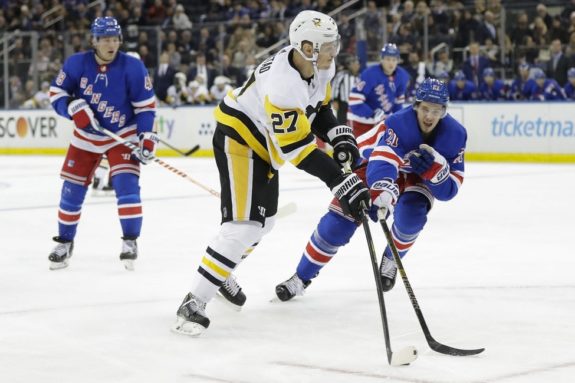
Sidney “Darryl” Crosby
Sidney Crosby has had many nicknames during his 19-year NHL career, and not all of them have been complimentary. However, one of his most unique nicknames came from his junior hockey days. In 2005, after some of his new Penguins teammates began noticing the name “Darryl” on the cuff of his glove, he told ESPN:
Not too many guys know [about the nickname] now, but when I was in junior, my first exhibition game I got eight points, and [Hall of Famer] Darryl Sittler got 10 in the NHL [in a game in 1976], so they just said ‘Darryl’ and it kind of stuck the last couple of years.
Matt “Dad” Cullen
You might think Penguins forward Matt Cullen earned the nickname “Dad” because he’s the father of three hockey-loving sons who enjoy cheering on No. 7 at games and running around the locker room after them. But that’s not quite where this nickname originated.
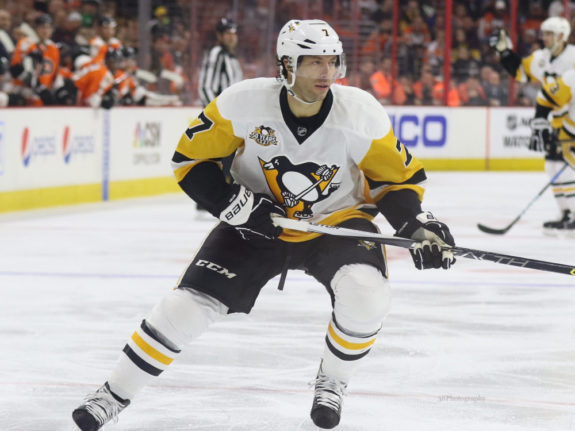
At age 42, Cullen was the oldest player on the Pittsburgh squad. At age 22, Jared McCann and Marcus Pettersson were both born in 1996, the year Cullen was drafted by the Mighty Ducks of Anaheim. This made Cullen old enough to be their “Dad”. It’s an easy nickname to remember, and an easy one to embrace.
Mario “Super Mario,” “Le Magnifique,” “Ace” Lemieux
It’s not surprising that the franchise’s best player has three unique nicknames. The name “Super Mario” is the most basic of the three, stemming from a player on the Nintendo video game series first released in 1985, the year after Mario Lemieux was drafted.
You may also like:
- Crosby Sets Record, Celebrini and McDavid Wow In Team Canada Win Over France
- Penguins Well Represented as Olympic Spotlight Shines on Pittsburgh Stars
- 3 Stanley Cup Winning Goalies Not in the Hockey Hall of Fame
- Penguins, Capitals & Bruins Show How to Navigate a Retool on the Fly
- Penguins Zero In on Blue Line Help Ahead of Trade Deadline
The name “Le Magnifique” which translates to “The Magnificent One” in English, pays homage to Lemieux’s French-Canadian roots, as well as acknowledging his status as one of the greatest hockey players of all time.
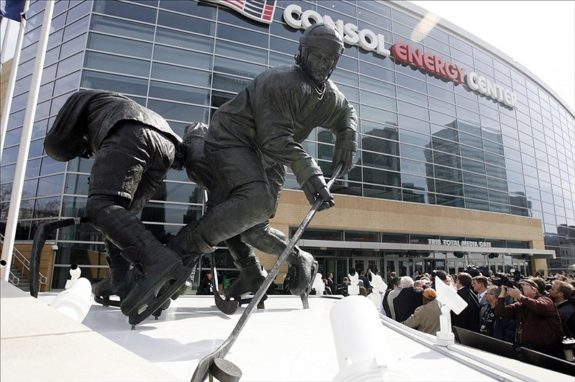
The name “Ace”, however, was not one that Lemieux embraced. According to a 2016 Pittsburgh Post-Gazette article by Dave Molinari entitled “On the Penguins: What’s in a (nick)name?,” former coach Gene Ubriaco began using the name when referring to Lemieux. Some teammates began using it too, simply because they knew he found it annoying.
Greg & Ryan “Bugsy” Malone
The father-son duo of Greg and Ryan Malone shared both their jersey No. 12 and the nickname “Bugsy” as members of the Penguins organization. Greg earned the nickname first, after the 1976 musical gangster comedy film Bugsy Malone. Greg was drafted by the Penguins the year the movie was released, making it a natural nickname. Ryan, too, adopted the nickname after being drafted by the Penguins in 1999.
Douglas “Crankshaft” Murray
The origin of former Penguins defenseman Douglas Murray’s nickname “Crankshaft” is a well-kept secret. Murray refuses to tell the name’s history, even informing Penguins reporter Michelle Crechiolo in 2013 that, “It’s still not going to get told if it helps the legend.”
Murray did offer a small tidbit of information in 2010 when speaking to Vancouver Sun reporter Ian Walker about his time with Cornell University of the Eastern College Athletic Conference (ECAC) saying, “Crankshaft” was a “long, secret story,” and came out of “a fun trip with some guys on the team.”
James “Lazy” Neal
James Neal and Evgeni Malkin had an interesting relationship both on and off the ice. Their friendship consisted of pulling pranks and insulting each other on Twitter. One of their most famous Twitter incidents occurred when Malkin tweeted that Neal was “lazy,” and fans went crazy.
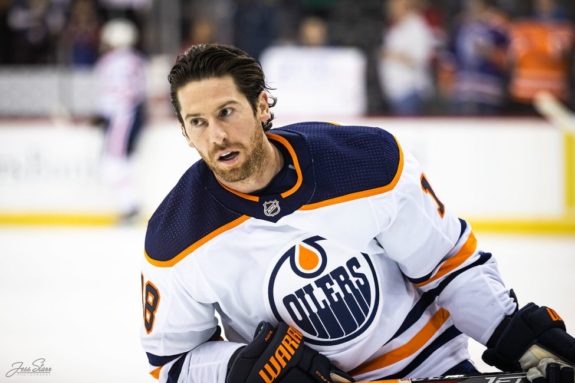
Of the remark, Neal told Pittsburgh Magazine’s Sean Conboy:
I mean… he’s Geno. It’s a lost battle getting into it with him. He always wins because he doesn’t understand what you’re saying anyway. So I’ll let him get those jabs in if he keeps passing me the puck.
Steven “Binky” Oleksy
It’s hard to imagine someone calling 6-foot, 194-pound former Penguins defenseman Steven Oleksy “Binky” and not earning a punch to the jaw. However, this childhood nickname followed him to the NHL.

In 2013, he told the blog Russian Machine Never Breaks how the nickname got started:
When I was younger, I was sick and I was in the hospital quite a bit. I called my pacifier my binky, and every time I started crying the nurses would tell my mom to put my binky in. She started calling me that, and then the kids at school caught on and it just kind of grew with me.
Brooks “Free Candy” Orpik
There has been speculation over the years as to why former Penguins defenseman Brooks Orpik earned the nickname “Free Candy”. Some theories are less family-friendly than others, but the most common tale is that the name relates to his hitting frequency. Orpik, known for delivering a multitude of hard hits every game tosses them out like “Free Candy” at a parade.
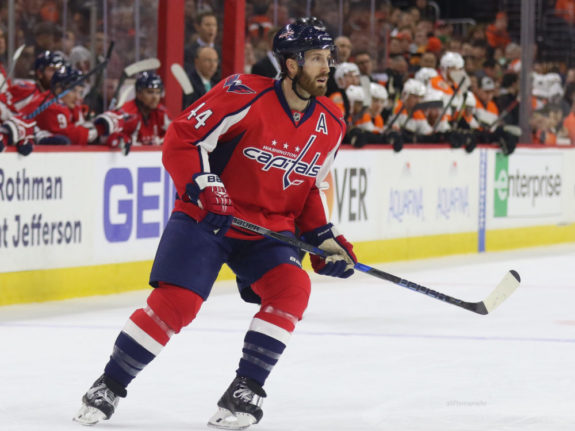
Derek “Turk” Sanderson
Derek Sanderson played just 13 games with the Penguins during the 1977-78 season, but still had an interesting nickname that followed him to all six teams in his NHL career. Known as Turk, the origin of the strange name was revealed when he spoke at a town hall event in 2015.
According to Sanderson, during his bantam hockey days, he was tricked into passing the puck to an opposing player when he heard someone say “Hey Derek,” behind him on the ice. From then on, Sanderson and his teammates were assigned sounds to make when they were calling for a puck, and he was forced to say “Gobble, Gobble,” like a turkey, or “Turk” for short.
Rob “The Piece” Scuderi
Rob Scuderi’s slip of the tongue earned him the nickname “The Piece” in 2009. While giving an interview during the 2009 Stanley Cup Final, Scuderi accidentally told a reporter that he was “the missing piece” rather than “a missing piece” of the Penguins’ puzzle. Teammates Crosby and Malkin found his misstep hysterical and began calling Scuderi “The Piece” thereafter.
Jordan “Gronk” Staal
Former Penguins forward and current Carolina Hurricanes captain Jordan Staal is a big man at 6-foot-4, 220 pounds. His hulking appearance on and off the ice did not go unnoticed by teammate Colby Armstrong, who nicknamed Staal “Gronk” after the Marvel Comics villain who possesses superhuman strength and can adhere to anything or make anything stick to him, like a hockey puck, perhaps?
Kevin “Artie” Stevens
Though Kevin Stevens and his father Arthur didn’t both play for the Pittsburgh Penguins like Greg and Ryan Malone, they, too, shared a nickname. Penguins players began calling Stevens “Artie” after meeting his father and seeing how alike the two men were in looks and personality.
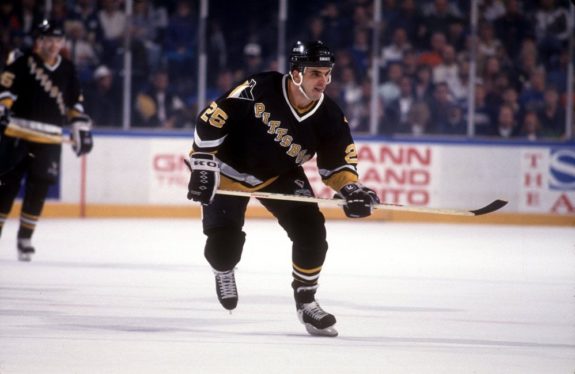
Steven’s former teammate John Cullen told Sportsnet’s Dan Robson, “[Kevin’s] dad was just like him. He was a bundle of joy.”
Brandon “Flat Stanley” Sutter
Brandon Sutter played with three different NHL teams – one in Canada and two in the United States – in his 13-year career, but that’s not why his former Penguins teammates called him “Flat Stanley.” It was, instead, because he was so skinny.
The nickname is a play on the Flat Stanley book series, first written by Jeff Brown, in which Stanley is squashed under a bulletin board and becomes flattened. He then mails himself around the world to have adventures.
Sutter wasn’t a fan of the nickname. Other choices? Goose, like the character from the 1986 film Top Gun.
Self-Appointed Nicknames
Sometimes, players will stumble upon nicknames all on their own. Similar to a musician’s stage name or an author’s pen name, hockey players, too, can choose what they wish to be called.
Max “Superstar” Talbot
Max Talbot’s motto for nicknames must have been, “If nobody gives you a good one, make up your own.” Max earned the moniker “Superstar” after starring in a series of commercials for local car dealer A&L Motor Sales. In the first
Jeff “Tishy” “Mr. Game One” Zatkoff
Former Penguins goalie Jeff Zatkoff created not one but two nicknames for himself. The origin of the first nickname, “Tishy,” was kept under wraps for years but in 2016 the minds behind the Penguins Twitter account revealed that it was a word Zatkoff made up himself that means “beauty”. The word “Tishy” also exists in Sanskrit and it means “fortunate”.
The second nickname “Mr. Game One,” arose during the Penguins’ 2016 Stanley Cup run. Following injuries to starting goaltender Marc-Andre Fleury and backup Matt Murray, Zatkoff was put in net for the first game of the first series against the New York Rangers. He took home the win that game but did not occupy the crease for the rest of the playoffs. Following the six-game victory against the San Jose Sharks for the Cup, he started a “Mr. Game One” chant for himself in the locker room, slyly implying that the entire victory began with him.
Fan-Chosen Nicknames
In the age of social media, fans have just as much power as anyone else to create nicknames for their favorite players. The following nicknames, while not as official as the ones that come out of the locker room, could catch on in the future with a perfectly placed Tweet.
Nick “Jughead” Bjugstad
There is no easy way to sound out the name Bjugstad. Instead, why not pull out a recognizable word like “Jug” and slap on a nickname of famous Archie Comics character Jughead Jones. Like Bjugstad and the chicken incident, Jughead is known for his insatiable appetite, which doesn’t have to be a coincidence.
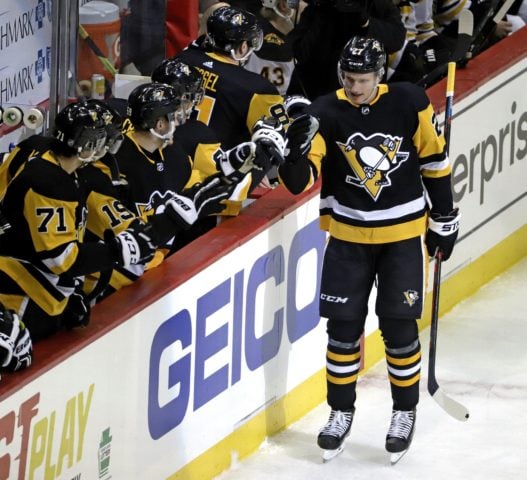
Teddy “Boogie Woogie Blueger Boy” Blueger
Teddy Blueger was great for the Penguins. With great power must come a great nickname, and Boogie Woogie Blueger Boy, a reference to the 1941 World War II song by The Andrews Sisters, rolls right off the tongue.
Johan “Moose” Hedberg
Though Johan Hedberg was a member of the Penguins long before Twitter was invented, he still managed to garner a fan-appointed nickname after joining the team in the 2000-01 season. Hedberg had just come off a stint with the Manitoba Moose of the AHL and had a large moose painted on his helmet, one he wore in his first game with the Penguins. Fans, recognizing the unique artwork, dubbed him “Moose” for the rest of his Penguins career.
Mark “The Test Tube” Letestu
Mark Letestu’s unusual fan nickname was created in part by NBC Sports and local Penguins television announcers who, when pronouncing his last name, seemed to be saying “The Test Tube.” On that level, it’s unclear whether the fans or the announcers should get credit for the nickname, so perhaps they’ll have to share the rights.

Jordan “Shorty Jordy” Staal
Calling Jordan Staal “Shorty Jordy” is no reference to his size, which would be a humorous but flawed companion to the Armstrong-appointed “Gronk”. The “Shorty Jordy” nickname is, instead, a nod to the seven short-handed goals Staal scored in his rookie season (2006-07) with the Penguins. He even holds the Guinness World Record for the most shorthanded ice hockey goals by a rookie in one season.
